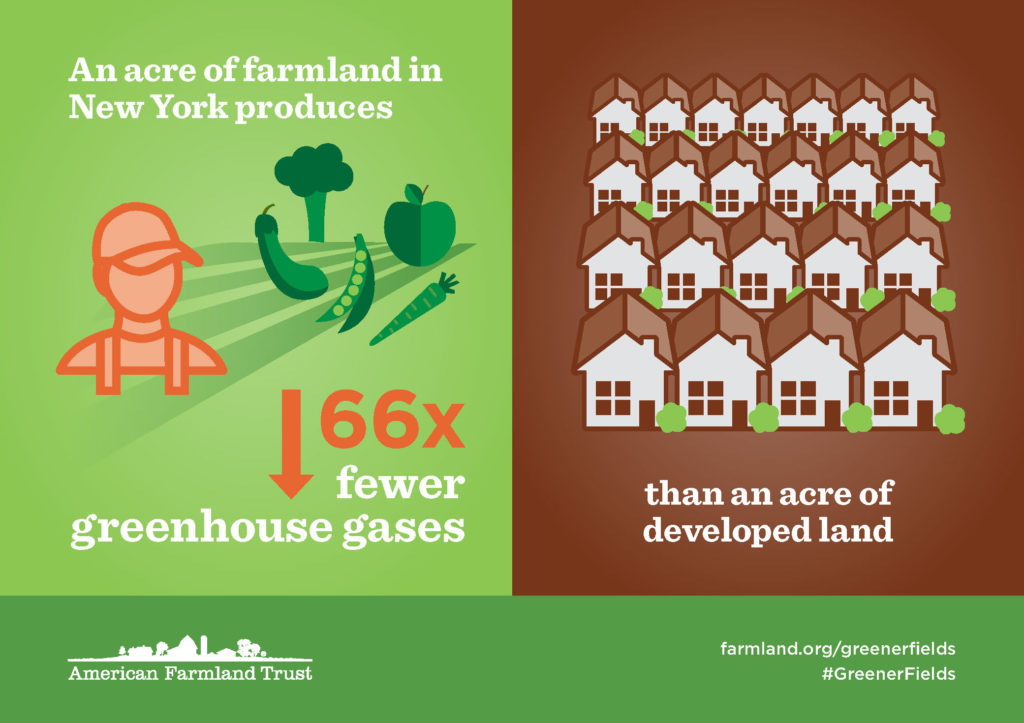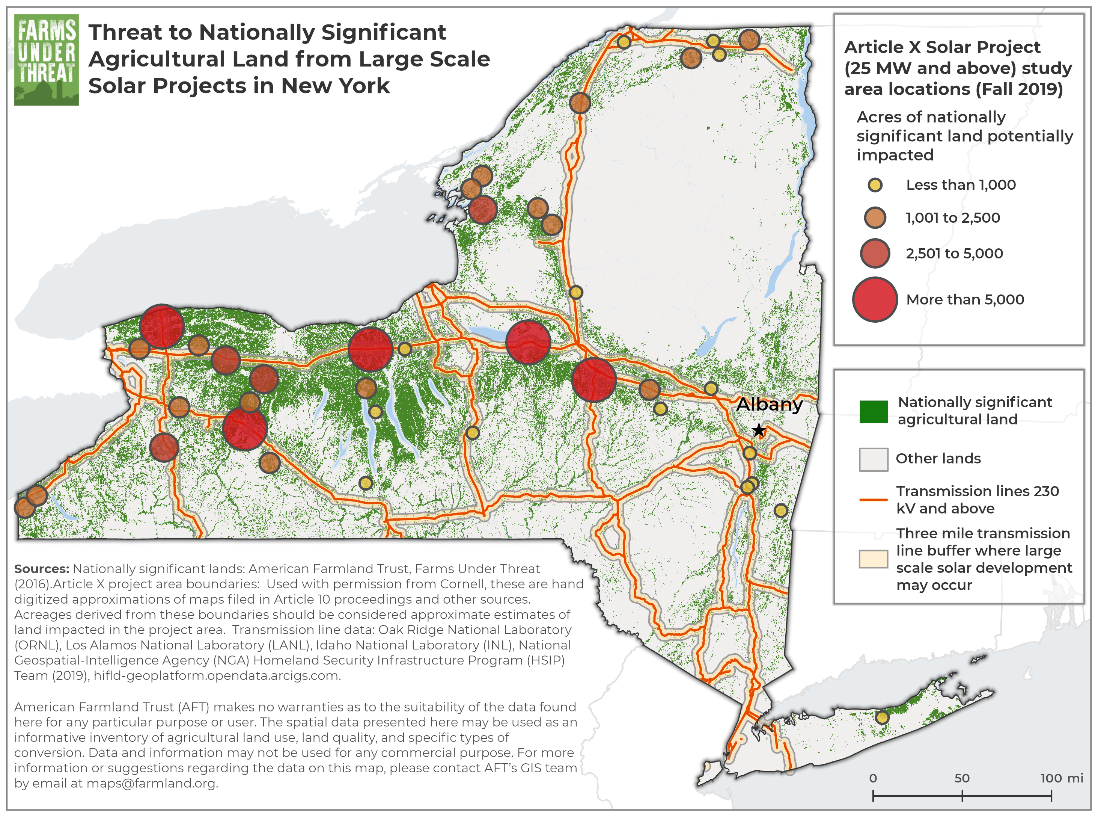Ensuring New York Farms are Part of the Climate Solution
Farmers are on the front lines of climate change – both in bearing the brunt of its damage from extreme weather and in being a key potential part of the solution. To ensure New York farms climate change are part of the climate solution, American Farmland Trust:
- Coordinates regular meetings with farmers and agricultural, conservation, and environmental organizations in New York to build power and develop and advocate for policies that support our farmers while enabling them to reach their full potential in mitigating the impacts of climate change.
- Meets with the governor, state leaders, agency staff, and lawmakers to advocate for these policies
- Serves as a member of the Agriculture and Forestry Advisory Panel to the Climate Action Council to shape the state’s implementation of the Climate Leadership and Community Protection Act for the agriculture sector.
- Conducts new research to advance these priorities and provides technical assistance to all U.S. Climate Alliance states and the Federal Government to develop policies that ensure farmers are a key part of our climate solution!
- AFT participated alongside tens of thousands of New Yorkers in the public comment process on the draft New York Climate Scoping Plan to provide recommendations on how we can support farmers and save the land that sustains us as we work to meet the state’s climate goals. Read the comments.
AFT focuses this policy work in New York state in three key areas:
Reducing GHG Emissions and Increasing Carbon Sequestration on Farms
The IPCC has stated that in order to stay below 2 degrees of warming, we must not only reduce GHG emissions as quickly as possible, but also sequester carbon already emitted into the atmosphere. One important way to do this is by improving management of our natural and working lands. Soils store 2-3 times more carbon than the atmosphere and 2-5 times more carbon than plants, and how farmers manage soils impacts their relative ability to store carbon, and as a result, our fight against climate change. AFT advocates for legislation, policies, and programs in New York that help farmers adopt practices that sequester carbon while also becoming more resilient to extreme weather, improving farm viability and soil health, increasing biodiversity and wildlife habitat, and providing New Yorkers with cleaner water and air.
Protecting Farmland to Protect our Planet
 Farmland Protection is also a critical tool in our fight against climate change. Keeping land in farming and promoting good stewardship of the land while encouraging new development to infill in cities, villages, and already developed areas offers an important way for New York to reduce GHG emissions, while implementing smart growth.
Farmland Protection is also a critical tool in our fight against climate change. Keeping land in farming and promoting good stewardship of the land while encouraging new development to infill in cities, villages, and already developed areas offers an important way for New York to reduce GHG emissions, while implementing smart growth.
Smart Solar Siting in New York State
AFT New York also works to ensure that all climate policies move us towards a more secure future. Farmland near transmission lines is increasingly becoming a first choice for solar developers due to the financial attractiveness of cleared, flat, sunny farmland—but often this is also our best land for growing food.
AFT research shows that 43% of the land proposed by renewable energy developers to host large-scale solar projects submitted as of Fall 2019 was comprised of our best farmland for growing food over time with minimal environmental impact. New York must achieve its 70% by 2030 renewable energy goal to fight climate change by decarbonizing the grid, but we must do this in a way that keeps farmers on the land and supports our future food security.

At AFT, we believe that we don’t have to choose between food security, farm viability, and climate action. We can plan to both protect our best farmland for food production and build enough solar and wind to generate energy and avert climate catastrophe. AFT is working to provide research and technical assistance to state and local governments in order to pass policies that support New York farm climate change operations and maximize renewable energy generation, while minimizing the impact on our best farmland.

